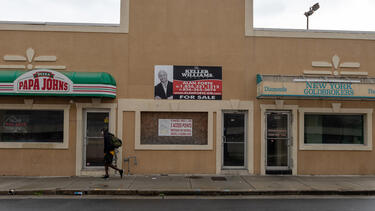COVID19
Going the Last Mile (with Evidence)
A study by Yale’s Mushfiq Mobarak and his colleagues found that nurses on motorbikes with vaccine-stocked coolers could help increase vaccination rates in rural Sierra Leone, showing that it is possible to get health interventions to the most remote and under-resourced areas cost-effectively, in ways that help ensure that the interventions are taken up and used.
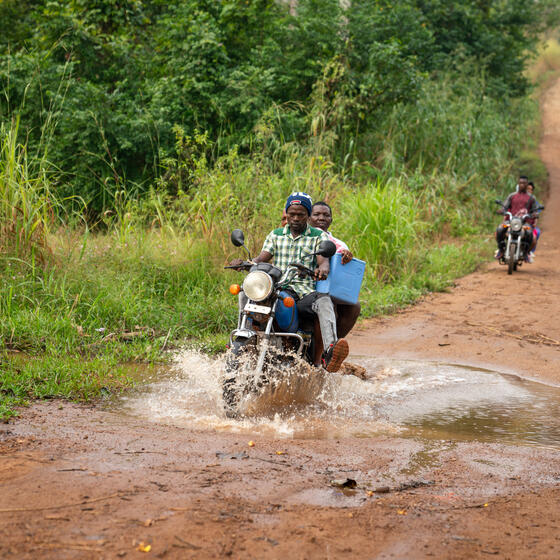
During the COVID-19 Crash, Investors’ Beliefs Didn’t Match Their Behavior
Despite a general wave of pessimism following the COVID-19 stock crash in March, few investors made significant changes to their portfolios, according to new research from Yale SOM’s Stefano Giglio.

The Art World in the Age of COVID
COVID created a crisis for the art world when museums, galleries, and art fairs were closed down. Is there reason for hope about what will emerge after the pandemic ends?

In Defense of (Mathematical) Models
Epidemiological models have played an influential role in governments’ responses to the COVID-19 pandemic. Yale SOM’s Edieal Pinker takes a look back at one of the most influential models and argues that such rigorous efforts at understanding the likely course of the disease, while imperfect, are critical to good decision making.
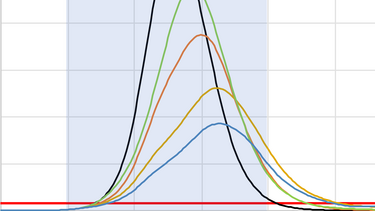
How Is the Airline Industry Adapting to COVID?
Debilitated by COVID-19, airlines are preparing to cut more than 30,000 jobs as soon as next month. We asked Prof. Kevin Williams to explain some of the economics of air travel and how the industry can survive in an age of stay-at-home orders.
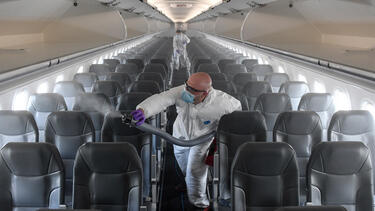
Adapting in India
Bikram Sohal ’97, who began the year leading the Indian office of a global ad-tech company, describes the impact of COVID-19 in India, a country with deep ties to the global economy but where much of the economy is still informal.
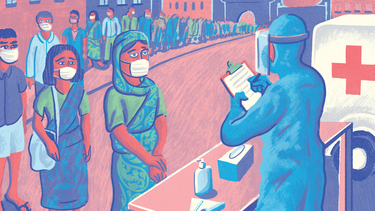
Seeking Scalable Solutions to Poverty
Prof. Mushfiq Mobarak describes the arc of his research on scalable, evidence-based policy responses to poverty and how existing research tools have been applied to fight COVID.
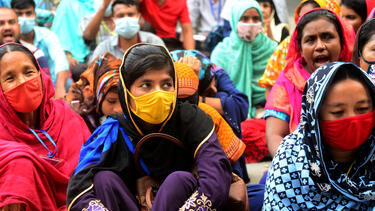
Connecticut Governor Ned Lamont
A year into his term as governor of Connecticut, Ned Lamont ’80 found himself with a new agenda: responding to the state’s outbreak of COVID-19, one of the first and most severe in the country. We talked with him about the partnerships he formed to bring down Connecticut’s infection rate and the risks that lie ahead.
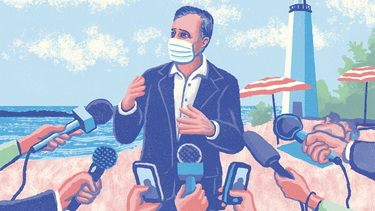
Adapting Primary Care to a Pandemic
Dr. Frank Ciminiello ’19 explains how his medical practice has reconfigured to safely meet patients’ needs.
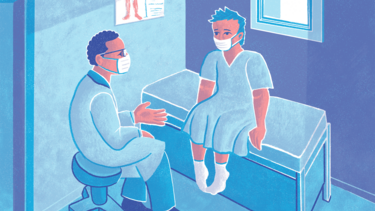
On COVID-19 Vaccines, Big Pharma Knows to Just Say ‘No’
In the face of pressure from President Donald Trump, nine major pharmaceutical companies have signed a pledge to complete testing before submitting vaccines for approval. Yale's Jeffrey Sonnenfeld and Dr. Albert Ko write that the drugmakers’ caution may help provide badly needed confidence in the eventual vaccine.
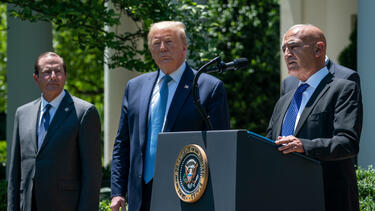
Can Government Contain the Economic Crisis?
Prof. Andrew Metrick, director of the Yale Program on Financial Stability, says that fighting a crisis is different from economic policymaking in normal times; governments need to be exceptionally generous and not get bogged down in stringent processes that keep money from getting to those in need.
